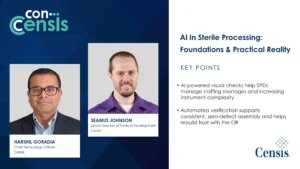How Healthcare Will Navigate Virtual Hiring Longterm
Prior to March of 2020, Oliver Esman, Managing Partner, Strawn Arnold & Associates did the vast majority of his recruiting work face to face. Today, Esman reports that 95% of their recruiting work is done virtually. “I spend my life on Teams and Zoom and FaceTime and people are adapting to it. You know, I think before people were worried that they were missing something on a virtual interview, missing the personality, not getting all the information, really getting a true sense of the candidate. And that’s just people have gotten more comfortable with doing things virtually,” Esman said.
Esman shared a few tips to make recruiting from a distance feel more natural and productive. First, he recommends studying the candidate’s resume in advance so you feel more comfortable. “So that’s really the key to it, you know studying a resume in advance and so you’re comfortable, you’re prepared. That makes a difference, because the candidate on the other end is ready to answer questions,” Esman explained. He also suggests getting comfortable with technology as you’ll be using it a lot.
Esman acknowledges you do lose some of the perks of in person interviews and that sometimes asking extra questions is necessary to make up for these disadvantages. For example, being willing to ask probing questions because you can’t take in their body language like you would during a face to face interview. “But if you ask the same questions again and again, or a couple times in a different way, you know you begin to get a sense of the candidate,” Esman said.
He believes that interviewers need to be willing to be a little more probing and they can’t leave the interview with questions unanswered. In some cases he thinks that virtual interviews can work in everyone’s favor, “Sometimes the candidates are more comfortable in their natural environments and they might actually be more forthcoming, because they’re in their natural environment. I asked another one of my partners today, like do you think it’s a better thing or a worse thing for virtual? And he said, ‘You know, I get more out of a virtual interview because the candidate is in their relaxed state’,” Esman said.










